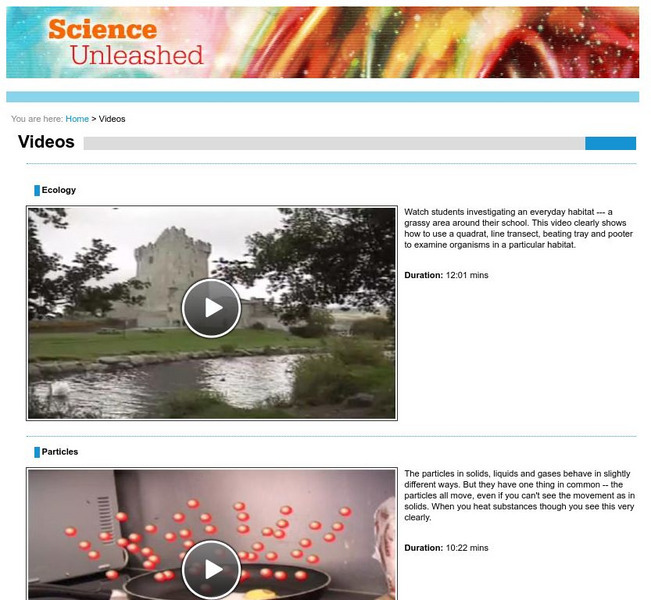msvgo
Energy Flow in Ecosystem
It explains the unidirectional flow of energy through different trophic levels; energy flow maintained by laws of thermodynamics, food web, food chain and the ten percent law.
Curated Video
Aerobic and Anaerobic Respiration: Energy Production in Living Organisms
This video explains the concept of cellular respiration and the differences between aerobic and anaerobic respiration. It explains the word and chemical symbol equations for aerobic and anaerobic respiration, as well as the differences...
msvgo
Introduction to Genes and Chromosomes
The nugget explains the location, number and structure of chromosomes and genes.
msvgo
Viruses and Viroids
This nugget describes the characteristic features of viruses, viroids and prions. It explains the contributions of different scientist and also provides examples of various types of viruses.
msvgo
Soil: An Important Natural Resource for Life
It explains the formation of soil. It talks about what soil is made up of and the soil profile.
msvgo
Habitat and Adaptation
It explains the concept of habitat and adaptation. It talks about classification of habitats.
Schooling Online
Biology Cells as the Basis of Life: Cell Structure - Plant Cells Part 1
Let’s fly to Eukarytopia, the home of the eukaryotes! You can learn all about plants in the Garden of Babylon! This lesson will begin our series on eukaryotic cells. We’ll look at the structure of plant cells, focusing on components that...
Wonderscape
Science Kids: Matter and Energy in Organisms and Ecosystems
This video explores the concepts of matter and energy in organisms and ecosystems. It explains how food provides energy for organisms, how plants use photosynthesis to convert sunlight into glucose, and how consumers obtain energy by...
Wonderscape
Science Kids: Biology Terms
In this video, students will learn about important terms in biology, including the definitions of living and non-living, life cycles, endangered species, and extinct species. The video breaks down these concepts and provides examples to...
FuseSchool
BIOLOGY - Environment - What is an ecosystem
In this video you'll learn all about ecosystems and how energy is transferred between organisms living together it the same environment.
Next Animation Studio
Alien life might be making methane on Saturn’s moon
Scientists found that Enceladus’ gas plumes contain unexpected amounts of methane, and methane is usually produced by living organisms.
Visual Learning Systems
Needs of Living Things: What Are Living Things?
Upon viewing the Needs of Living Things video series, students will be able to do the following: Explain that living things have the following characteristics: they are made up of one or more cells, carry out movement, grow, and develop....
CTE Skills
HST-AP - Anatomy & Physiology of the Human Cell
The Anatomy (Structure) and Physiology (Functions) of the human cell. The human cell has an outer protective cover called the cell membrane. A semifluid called cytoplasm is contained within the membrane. The structures that make up the...
Mazz Media
Way Cool Science II: Ecosystems and Biomes
The climate, animals, and plant life vary greatly in the different parts of the world. Students explore how wildlife and the environment work together in harmony. By viewing the program and engaging in activities, viewers will learn to...
Professor Dave Explains
Viruses: Molecular Hijackers
Most of us know about viruses, and that they spread disease. But what is a virus exactly? Is it alive? How does it infect a host? There's a lot to discuss here! Take a look.
Khan Academy
Khan Academy: What Is Life?
Defining life is harder than it seems. This video explains four key qualities that all living things possess: Metabolism, Homeostasis, Reproduction, and Adaptation. DNA plays a crucial role in all of these qualities. [10:24]
National Centre for Technology in Education
Science Unleashed: Videos
Fifteen short videos that explore some Junior Certificate science concepts.


